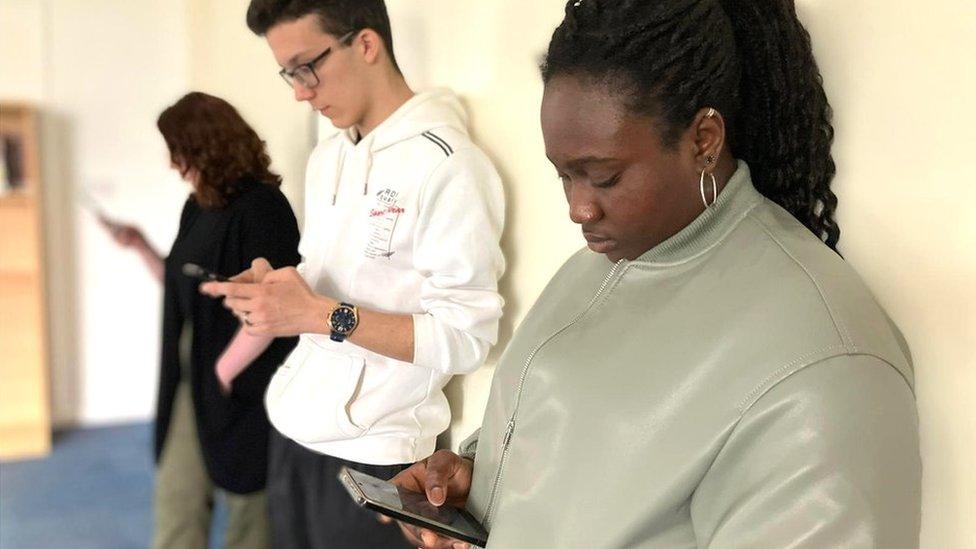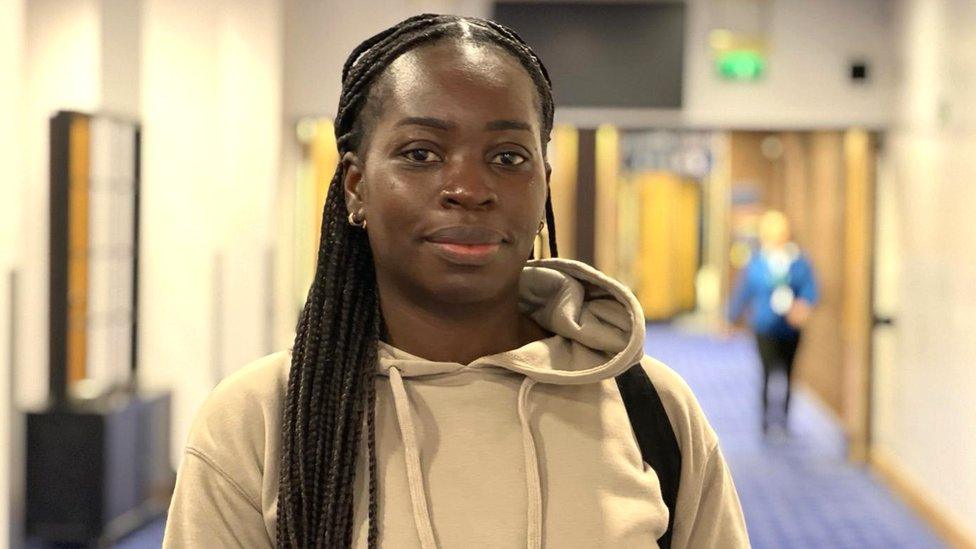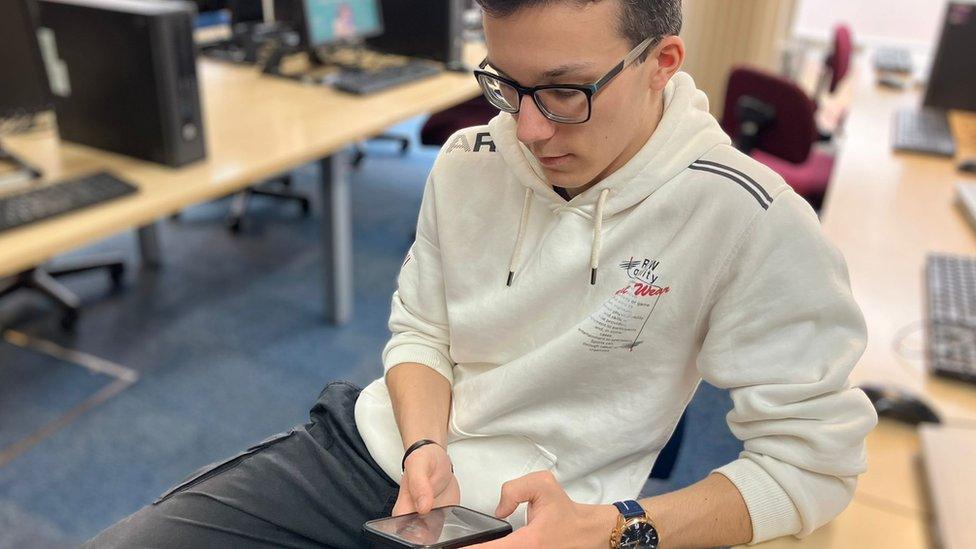Rise in school sexism down to phones, says union
- Published

Sexism is on the rise in schools because of harmful content on children's phones, according to the National Education Union's (NEU) general secretary.
Daniel Kebede said boys watched "aggressive and violent pornography" and influencer content that "completely distorts their view of women".
And he called for an inquiry to "really challenge" social-media companies.
The government said legislation would require tech giants to do more.
Its Online Safety Bill, which aims to make the internet safer for children, became law in October.
Warning: Readers may find some of the terms used below offensive.
Mr Kebede's comments came as teachers at the NEU conference, in Bournemouth, prepared to debate a motion about the rise of online misogyny and its impact in the classroom.
During the debate, one speaker said she had overheard teenage boys discussing women's safety on the streets, agreeing that if they were to have daughters, they would want them to have husbands who could "look after them".
Another said she was asked by a parent to stop challenging a pupil about the views of the controversial influencer Andrew Tate.
One teacher said teenage boys did not see enough promotion of "positive masculinity", and turned to influencers like Mr Tate because they felt "demonised".
In interviews before the debate, Kaspar Zeta-Skeet said there was an "assumption" among some teenagers he taught "that women are things just to be observed", and he had heard words such as "slut" and "whore" being used about female pupils and staff.
"We know where this is coming from in terms of the social-media content surrounding... what it is to be a 'real man'," he said.
"A large part of my role.. is to try and combat those ideas and try and provide a role model of positive masculinity that doesn't demonstrate these sort of toxic traits."
Nina Darkowa said online content meant some girls at her secondary school were concerned with their body image from a very young age.

Nina Darkowa has heard students in Year Eight talking about plastic surgeries
"I've heard students in Year Eight - who are between the ages of 12 and 13 - talking about the different plastic surgeries that they plan to have once they're old enough," she said.
And pupils were sometimes unable to tell when images had been manipulated with artificial intelligence (AI).
"They don't believe it," Ms Darkowa said.
"They feel like with plastic surgery or however many hours in the gym or dressed in a certain way that they can look like these images that they see.
"The girls are living up to a standard that is not achievable."
A-level students told the BBC they were concerned about other types of extreme content online - as well as bullying and hateful comments.

Robert says social media is great for chatting with friends, but he worries about what comes up in his feed
Robert spends an average of five hours a day on his phone and says he has come across videos showing fatal accidents while scrolling.
"Everything can be found online," he told the BBC.
"It is shocking to see that. Why is it even on the platform?" he said. "It dehumanises you."
'Very difficult'
The government said its Online Safety Act would require social-media companies to protect children from harmful content.
But Mr Kebede, a former teacher, said such content was still not looked at with "the seriousness that it absolutely deserves".
He had met girls who had been assaulted, "without doubt because the young boys that they are interacting with have had their world views shaped by what they're accessing on their smartphone".
Individual parents or schools were unable to fix the problem - and "ultimately", responsibility lay with "big tech".
"It is very difficult to be that one parent who says to their child, 'You can't have a smartphone,'" Mr Kebede said.
"There needs to be some sort of parliamentary inquiry."
Banned phones
The Department for Education said it expected schools "to take immediate action against sexual misconduct or harassment".
In February, schools in England were given guidance to stop mobile phones being used during the school day.
While many had already banned phones, the change would ensure a consistent approach, the government said.
It was reviewing statutory guidance on relationships, sex and health education - as well as its support for schools.
Tom Madders, of mental-health charity Young Minds, said social media was an "important space" for young people to socialise - but they could feel "trapped" by algorithms and unable to switch off.
National Society for the Prevention of Cruelty to Children (NSPCC) senior child-safety online-policy officer Rani Govender said the government's implementation of the Online Safety Act must be "ambitious".
Additional reporting by Munaza Rafiq and Christina McSorley.


How have you been affected by the issues raised in this story? You can share your experiences by emailing: haveyoursay@bbc.co.uk, external.
Please include a contact number if you are willing to speak to a BBC journalist. You can also get in touch in the following ways:
WhatsApp: +44 7756 165803, external
Tweet: @BBC_HaveYourSay, external
Or fill out the form below
Please read our terms & conditions and privacy policy
If you are reading this page and can't see the form you will need to visit the mobile version of the BBC website to submit your question or comment or you can email us at HaveYourSay@bbc.co.uk, external. Please include your name, age and location with any submission.

Related topics
- Published19 February 2024

- Published19 February 2024

